World
Africa Transcending into BRICS+ Orbit
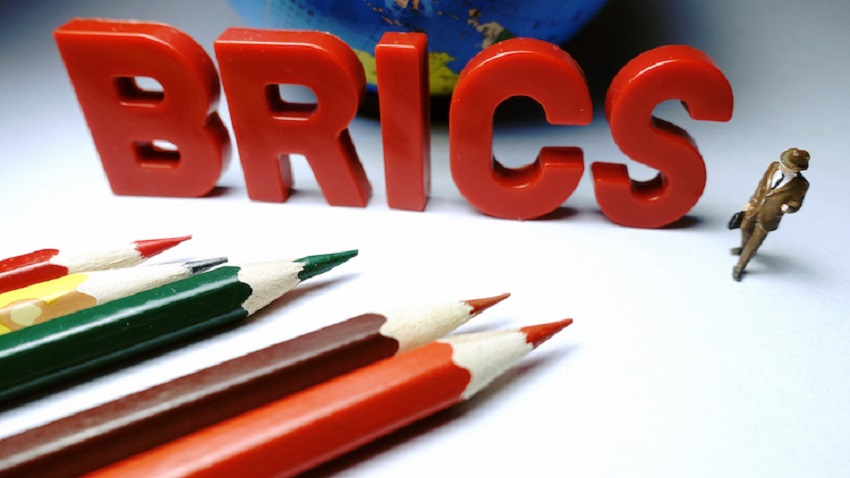
By Professor Maurice Okoli and Professor Chinedu Ochinanwata
After the historic 16th BRICS summit held in October 2024, three African States Algeria, Nigeria and Uganda, among others in Europe (Belarus and Turkey), Asia and Latin America, recognizably became BRICS+ partner states. In total, 13 countries received BRICS partner status, according to declaration reports by the Russian Ministry of Foreign Affairs. This category of ‘partner states’ was primarily designated as part of the distinctive-focused leeway towards acquiring full membership status in the determined future.
The legitimate implications for being in this category are quite notable and provide colourful heterogeneity to the BRICS+ association. It also encompasses a growing influence, the bubbling upliftment of these countries on another level of the global stage. Of course, these cannot be underestimated in discussing BRICS+, especially in the era of shifting economic architecture and geopolitical situations.
Together, the BRICS members encompass nearly a third of the world’s land surface and almost half of the world’s population. BRICS is an informal association of emerging economies, comprising Brazil, Russia, India, China, and South Africa, with the latest additions Ethiopia, Egypt, Iran, Saudi Arabia and the United Arab Emirates. Argentina declined to join at the last moment.
Despite various criticisms raised against a number of countries that ascended into the category of ‘partner states’ for BRICS+, each has its strategic dimension. In assessing particularly African countries – Algeria (North Africa), Nigeria (West Africa) and Uganda (East Africa) – BRICS+ now, has, in the first place, a wider geographical representation across Africa. It is important to reiterate here that Ethiopia, Egypt and South Africa are full-fledged BRICS members.
Ethiopia, by all standards, is a reputable country in East Africa. The continental organisation African Union (AU) is headquartered in its capital, Addis Ababa. Egypt, considered to be a regional power, also plays invaluable roles within the Arab world, specifically in North Africa and in the Middle East region. Without much doubt, the new ‘partner states’ – Algeria, Nigeria and Uganda have indicated their collective commitment to the multifaceted ideals in the declaration adopted in Kazan, Tatarstan Republic.
BRICS’ numerical expansion and quality transformation in January 2024, and the creation of ‘partner states’ in October 2024, both under Russia’s BRICS+ chairmanship have undoubtedly opened doors to new partnership opportunities for Africa.
The strongest question centred on how BRICS’ African partnering states, Algeria, Nigeria and Uganda can strategically position themselves to benefit from the evolving dynamics within BRICS+ while, in this new geopolitical reality, simultaneously navigating for competing geopolitical interests in Africa. There are emerging challenges, but BRICS’s influence is growing and provides an impetus for strengthening relations and working systematically for economic growth, especially in the processes of reshaping economic architecture in this fast-rising multipolar world.
Nigeria and Uganda, as potential partners in the BRICS, could engage in several collaborative initiatives to enhance their economic political and social developments, including trade and investment.
For instance, Nigeria, with its natural resources and increasingly large market, and Uganda, with its agricultural potential, can collaborate to boost intra-BRICS trade and that of intra-Africa trade. In addition to this, exploring investment opportunities in sectors such as manufacturing, production innovation and technology has a clean basis to add value to the raw materials and transform them into exportable products.
Closing related to the above, are pertinent questions of ensuring energy security and infrastructure (transport logistics). Nearly all African countries are griffing for support in technology transfer, and fintech – these largely depend on sustainable energy supply. Consequently, joint initiatives could harness the capabilities of BRICS members, particularly China, India and Russia in these sectors.
By leveraging their respective strengths and, with a focused approach, Nigeria and Uganda could address these shortfalls and deficits, and further down extend assistance across West Africa, and in East Africa. One key advantage is that Uganda has Ethiopia and Egypt as BRICS members, a ready-made basis for BRICS collaboration despite the differences and persistent conflicts in the region. The basic requirement here is to find a common understanding and distinctive focused sectors for collaboration.
Comparatively, there is much-proven evidence and features, including its size of economic power and wealth, its leadership in Africa as an energy power, and its abundant supply of natural resources. This West African country ranks third behind Egypt and South Africa, and Nigeria is qualified for a full-fledged BRICS membership.
Nigeria is often referred to as the Giant of Africa by its citizens due to its large population (estimated at 220m) with a large economy and is considered to be an emerging market by the World Bank. It is, however, believed Nigeria’s foreign relations with the Western powers may be a major reason the country has not yet subscribed to BRICS membership.
Despite this identified political complexity authorities, however, maintain a concrete decision to be made over the next two years, Nigeria’s expected role in BRICS+ could augment Africa’s capability to influence regional trade, economics and politics.
Reports monitored indicated that Nigeria runs a deliberative democratic system. As part of a new foreign policy push to have its voice heard in important global organisations, the Federal Executive Council, and even the National Assembly have to make deliberations and official majority decisions towards joining the BRICS+ association.
Meanwhile, Nigeria is currently in the well-meaning and clearly defined ‘partner states’ category which guarantees collaboration and partnership with BRICS+ members. In addition, it has the possibility of balancing its national interests with the collective goals of the BRICS.
South Africa which ascended to BRICS more than a decade ago has noticeably benefited from its membership. Ethiopia, which was granted BRICS membership status in January 2024 along with Egypt, has significant working relations with China, Russia and India. Based on its strong partnership, China has financed the 20-story office complex, which is one of the most prominent political buildings in Addis Ababa. It was fully funded, designed, built, and furnished by China as a $200m gift to Africa. While India’s case need not be over-emphasized and reiterated, Russia has also followed suit by exploring and making economic investments in Ethiopia.
In November 2022, Algeria officially applied for membership in BRICS. But its official application for BRICS+ membership, at first, attracted debates, and experts raised controversial points in connection with its role with neighbouring Morocco and particularly the Sahel States, including Mali and Niger which are currently undergoing some tectonic political changes and reforms.
Algeria, located in the Maghreb region of North Africa, has strategic importance for external powers such as the United States, Europe, China and Russia as well as those in the Middle East. Its capital and largest city Algiers, situated in the far north on the Mediterranean coast, is considered as a gateway into North Africa, by foreign players. It has a budget of €15.4 billion and provides the bulk of funding through some programmes, as it is included in the European Union’s European Neighbourhood Policy (ENP) which aims at bringing the EU and its neighbours closer.
After studying various reports, Algeria has passed through a chequered journey, in fact handling it as a potential opportunity to balance its Maghreb regional position, at least, by obtaining BRICS ‘partner status’ in October 2024. There were serious reports that India vetoed Algeria’s BRICS+ entry at France’s request.
Tension arose over Burkina Faso, Mali and Niger geopolitical crisis in the region, Algeria opposed an ECOWAS military operation in Niger and emphasized the role of diplomacy in bringing about a peaceful solution to the crisis, and refused permission for French military aircraft to fly over Algerian airspace. It was further explained that Paris reportedly pushed New Delhi into using its veto as ‘revenge’ against Algiers for its growing influence in the Sahel and Maghreb region, and as a way to slow down burgeoning ties between Algeria and China.
Nonetheless, Brazilian President Luiz Inacio Lula da Silva also opposed Algeria’s entry, according to Anadolu Agency. But while Algeria surpasses Ethiopia in the size of the economy and oil production and, Ethiopia and Egypt in terms of the volume of gas exports, China backed by Russia pushed Algeria to be accepted for partnership status in BRICS+, with the future possibility of attaining full membership. China sees great potential due to its strategic location between Europe and sub-Saharan Africa. China is funding the rehabilitation of the strategic Port of El Hamdania, as Algeria remains an essential part of the Belt and Road Initiative (BRI).
On the sidelines of the ninth annual meeting of the BRICS New Development Bank (NDB) held in Cape Town, Algeria was authorized to become a member of this financial entity. With its ‘partner status’, Algeria intended to buy shares in the BRICS New Development Bank (NDB) for $1.5 billion. In the opinion of Dilma Vana Rousseff, Chair of the New Development Bank, the move to join the bank would mark Algeria’s integration into the global financial system as the ninth member of the multilateral development institution.
On the other hand, Algeria plans to use its fast-tracked initiatives and its ‘partner status’ to ultimately attract BRICS+ members to invest in the free industrial zone with Mauritania and Niger, and then with Tunisia and Libya. Algerian President Abdelmadjid Tebboune underlined this to have massive geopolitical ramifications and could be important to the emerging multipolar goals in the Global South.
Furthermore, Tebboune outlined his government’s plans for economic development over the next 12 months, including the possibility of boosting investments, improving human development, and shifting towards a more advanced export structure relying less on hydrocarbons to qualify for membership into BRICS. With this high desire to be in BRICS+, Algeria still considers Western countries as important partners in trade, security, and other economic areas.
Lately, the BRICS countries have been getting more involved in Africa. The New Development Bank (NDB) was set up to help fund infrastructure and sustainable development projects, not just in BRICS countries but now in other growing economies too. It’s seen as an alternative to big players like the IMF and the World Bank.
The NDB, founded in 2015 by the BRICS countries—Brazil, Russia, India, China, and South Africa—aims to mobilize resources for infrastructure and sustainable development projects in emerging economies. It complements the work of existing multilateral and regional financial institutions in promoting global economic growth. In 2021, the bank expanded its membership to include Bangladesh, Egypt, the UAE, and Uruguay.
Despite multiple obstacles within the Arab Maghreb Union, specifically persistent conflict between Algeria and Morocco, in August 2021, Algeria ultimately announced the break of diplomatic relations with Morocco. Besides this, Algeria’s relations are not very cordial with Ethiopia and Egypt which are BRICS members.
As a result, its request to join BRICS was slightly opposed by Ethiopia and Egypt. And of course, Ethiopia and Egypt have conflicts over the Grand Renaissance Dam (GERD) and the Nile River. While Algeria remains an inescapable candidate for BRICS+, both African and foreign experts have argued that with the completion of the Trans-Saharan Highway, it is well positioned to develop BRICS-Sub-Saharan trade. The possibilities are immense, and their sponsorship would make Algeria a truly indispensable member of the BRICS.
In June 2024, the World Bank’s 2024 report marks a turning point for Algeria, which joins the select club of upper-middle-income countries. This economic rise, the result of an ambitious development strategy, places the country in the same category as emerging powers such as China, Brazil and Turkey.
In recent years, the Algerian government has halted the privatization of state-owned industries and imposed restrictions on imports and foreign involvement in its economy. These restrictions would prevent them from benefiting largely from the BRICS+ trade and investment platform created during the summit in Kazan.
That, however, China and Russia have comparatively less practical investment than the Gulf States. For instance, Turkish direct investments have accelerated in Algeria, with total value reaching $5 billion. As of 2022, the number of Turkish companies present in Algeria has reached 1,400, far lower than Russia and China, and any other BRICS+ in an anticipated positive direction. Algeria has the 10th largest reserves of natural gas in the world and is the 6th largest gas exporter. Despite its huge natural resources, the majority of the country’s population (an estimated 45.6 million) is still noticeably impoverished, the overall rate of unemployment was 11.8% in 2023.
South Africa, Ethiopia and Egypt (full members of BRICS+), and Algeria, Nigeria and Uganda (as partner states) have the potential to bring various multifaceted economic and social advantages to the African continent and to a new level at the side of BRICS+ association. In many areas, the partnership could be delivered that are beneficial to Africa, although African members of BRICS+ need to utilize the partnership to the fullest in terms of the potential of the available resources, the potential usefulness of African Continental Free Trade (AfCFTA) and the emerging business opportunities. Last but not least, there is also the need to align these different kinds of partnerships to the common strategic objectives of the African Union.
Professor Maurice Okoli is a fellow at the Institute for African Studies and the Institute of World Economy and International Relations, Russian Academy of Sciences. He is also a fellow and lecturer at the North-Eastern Federal University of Russia. He serves as an expert at the Roscongress Foundation and the Valdai Discussion Club.
As an academic researcher and economist with a keen interest in current geopolitical changes and the emerging world order, Maurice Okoli frequently contributes articles for publication in reputable media portals on different aspects of the interconnection between developing and developed countries, particularly in Asia, Africa, and Europe. With comments and suggestions, he can be reached via email: markolconsult (at) gmail (dot) com.
Professor Chinedu Ochinanwata is a Nigerian academic and serial entrepreneur. He is a professor of digital economy and innovation, and is currently serving as pioneer director at Nasarawa State University, Keffi Enterprise Centre.
Vice President of African Development Institute of Research Methodology (ADIRM). Email: chineduochi (at) yahoo (dot) com.
World
African Visual Art is Distinguished by Colour Expression, Dynamic Form—Kalalb

By Kestér Kenn Klomegâh
In this insightful interview, Natali Kalalb, founder of NAtali KAlalb Art Gallery, discusses her practical experiences of handling Africa’s contemporary arts, her professional journey into the creative industry and entrepreneurship, and also strategies of building cultural partnership as a foundation for Russian-African bilateral relations. Here are the interview excerpts:
Given your experience working with Africa, particularly in promoting contemporary art, how would you assess its impact on Russian-African relations?
Interestingly, my professional journey in Africa began with the work “Afroprima.” It depicted a dark-skinned ballerina, combining African dance and the Russian academic ballet tradition. This painting became a symbol of cultural synthesis—not opposition, but dialogue.
Contemporary African art is rapidly strengthening its place in the world. By 2017, the market was growing so rapidly that Sotheby launched its first separate African auction, bringing together 100 lots from 60 artists from 14 foreign countries, including Algeria, Ghana, Mali, Nigeria, Senegal, and others. That same year during the Autumn season, Louis Vuitton Foundation in Paris hosted a major exhibition dedicated to African art. According to Artnet, sales of contemporary African artists reached $40 million by 2021, a 434% increase in just two years. Today, Sotheby holds African auctions twice a year, and in October 2023, they raised $2.8 million.
In Russia, this process manifests itself through cultural dialogue: exhibitions, studios, and educational initiatives create a space of trust and mutual respect, shaping the understanding of contemporary African art at the local level.
Do you think geopolitical changes are affecting your professional work? What prompted you to create an African art studio?
The international context certainly influences cultural processes. However, my decision to work with African themes was not situational. I was drawn to the expressiveness of African visual language—colour, rhythm, and plastic energy. This theme is practically not represented systematically and professionally in the Russian art scene.
The creation of the studio was a step toward establishing a sustainable platform for cultural exchange and artistic dialogue, where the works of African artists are perceived as a full-fledged part of the global cultural process, rather than an exotic one.
To what extent does African art influence Russian perceptions?
Contemporary African art is gradually changing the perception of the continent. While previously viewed superficially or stereotypically, today viewers are confronted with the depth of artistic expression and the intellectual and aesthetic level of contemporary artists.
Portraits are particularly impactful: they allow us to see not just an abstract image of a “continent,” but a concrete personality, character, and inner dignity. Global market growth data and regular auctions create additional trust in African contemporary art and contribute to its perception as a mature and valuable movement.
Does African art reflect lifestyle and fashion? How does it differ from Russian art?
African art, in my opinion, is at its peak in everyday culture—textiles, ornamentation, bodily movement, rhythm. It interacts organically with fashion, music, interior design, and the urban environment. The Russian artistic tradition is historically more academic and philosophical. African visual art is distinguished by greater colour expression and dynamic form. Nevertheless, both cultures are united by a profound symbolic and spiritual component.
What feedback do you receive on social media?
Audience reactions are generally constructive and engaging. Viewers ask questions about cultural codes, symbolism, and the choice of subjects. The digital environment allows for a diversity of opinions, but a conscious interest and a willingness to engage in cultural dialogue are emerging.
What are the key challenges and achievements of recent years?
Key challenges:
- Limited expert base on African contemporary art in Russia;
- Need for systematic educational outreach;
- Overcoming the perception of African art as exclusively decorative or ethnic.
Key achievements:
- Building a sustainable audience;
- Implementing exhibition and studio projects;
- Strengthening professional cultural interaction and trust in African
contemporary art as a serious artistic movement.
What are your future prospects in the context of cultural diplomacy?
Looking forward, I see the development of joint exhibitions, educational programs, and creative residencies. Cultural diplomacy is a long-term process based on respect and professionalism. If an artistic image is capable of uniting different cultural traditions in a single visual space, it becomes a tool for mutual understanding.
World
Ukraine Reveals Identities of Nigerians Killed Fighting for Russia

By Adedapo Adesanya
The Ukrainian Defence Intelligence (UDI) has identified two Nigerian men, Mr Hamzat Kazeem Kolawole and Mr Mbah Stephen Udoka, allegedly killed while fighting as Russian mercenaries in the war between the two countries ongoing since February 2022.
The development comes after Russia denied knowledge of Nigerians being recruited to fight on the frontlines.
Earlier this week, the Russian Ambassador to Nigeria, Mr Andrey Podyolyshev, said in Abuja that he was not aware of any government-backed programme to recruit Nigerians to fight in the war in Ukraine.
He said if at all such activity existed, it is not connected with the Russian state.
However, in a statement on Thursday, the Ukrainian Defence released photographs of Nigerians killed while defending Russia.
“In the Luhansk region, military intelligence operatives discovered the bodies of two citizens of the Federal Republic of Nigeria — Hamzat Kazeen Kolawole (03.04.1983) and Mbah Stephen Udoka (07.01.1988),” the statement read.
According to the statement, both men served in the 423rd Guards Motor Rifle Regiment (military unit 91701) of the 4th Guards Kantemirovskaya Tank Division of the armed forces of the Russian Federation.
UDI said that they signed contracts with the Russian Army in the second half of 2025 – the deceased Mr Kolawole on August 29 and Mr Udoka on September 28.
“Udoka received no training whatsoever — just five days later, on October 3, he was assigned to the unit and sent to the temporarily occupied territories of Ukraine,” the report read.
It added that no training records for Mr Kolawole have been preserved; however, it is highly likely that he also received no military training, but his wife and three children remain in Nigeria.
Both Nigerians, the report added, were killed in late November during an attempt to storm Ukrainian positions in the Luhansk region.
“They never engaged in a firefight — the mercenaries were eliminated by a drone strike,” UDI stated, warning foreign citizens against travelling to the Russian Federation or taking up any work on the territory of the “aggressor state”.
“A trip to Russia is a real risk of being forced into a suicide assault unit and, ultimately, rotting in Ukrainian soil,” the statement read.
In an investigation earlier this month, CNN reported that hundreds of African men have been enticed to fight for Russia in Ukraine with the promise of civilian jobs and high salaries. However, the media organisation uncovered that they are being deceived or sent to the front lines with little combat training.
CNN said it reviewed hundreds of chats on messaging apps, military contracts, visas, flights and hotel bookings, as well as gathering first-hand accounts from African fighters in Ukraine, to understand just how Russia entices African men to bolster its ranks.
World
Today’s Generation of Entrepreneurs Value Flexibility, Autonomy—McNeal-Weary

By Kestér Kenn Klomegâh
The Young African Leaders Initiative (YALI) is the United States’ signature step to invest in the next generation of African leaders. Since its establishment in 2010 by Obama administration, YALI has offered diverse opportunities, including academic training in leadership, governance skills, organizational development and entrepreneurship, and has connected with thousands of young leaders across Africa. This United States’ policy collaboration benefits both America and Africa by creating stronger partnerships, enhancing mutual prosperity, and ensuring a more stable environment.
In our conversation, Tonya McNeal-Weary, Managing Director at IBS Global Consulting, Inc., Global Headquarters in Detroit, Michigan, has endeavored to discuss, thoroughly, today’s generation of entrepreneurs and also building partnerships as a foundation for driving positive change and innovation in the global marketplace. Here are the excerpts of her conversation:
How would you describe today’s generation of entrepreneurs?
I would describe today’s generation of entrepreneurs as having a digital-first mindset and a fundamental belief that business success and social impact can coexist. Unlike the entrepreneurs before them, they’ve grown up with the internet as a given, enabling them to build global businesses from their laptops and think beyond geographic constraints from day one. They value flexibility and autonomy, often rejecting traditional corporate ladders in favor of building something meaningful on their own terms, even if it means embracing uncertainty and financial risk that previous generations might have avoided.
And those representing the Young African Leaders Initiative, who attended your webinar presentation late January 2026?
The entrepreneurs representing the Young African Leaders Initiative are redefining entrepreneurship on the continent by leveraging their unique perspectives, cultural heritage, and experiences. Their ability to innovate within local contexts while connecting to global opportunities exemplifies how the new wave of entrepreneurs is not confined by geography or conventional expectations.
What were the main issues that formed your ‘lecture’ with them, Young African Leaders Initiative?
The main issues that formed my lecture for the Young African Leaders Initiative were driven by understanding the importance of building successful partnerships when expanding into the United States or any foreign market. During my lecture, I emphasized that forming strategic alliances can help entrepreneurs navigate unfamiliar business environments, access new resources, and foster long-term growth. By understanding how to establish strong and effective partnerships, emerging leaders can position their businesses for sustainable success in global markets. I also discussed the critical factors that contribute to successful partnerships, such as establishing clear communication channels, aligning on shared goals, and cultivating trust between all parties involved. Entrepreneurs must be proactive in seeking out partners who complement their strengths and fill gaps in expertise or resources. It is equally important to conduct thorough due diligence to ensure that potential collaborators share similar values and ethical standards. Ultimately, the seminar aimed to empower YALI entrepreneurs with practical insights and actionable strategies for forging meaningful connections across borders. Building successful partnerships is not only a pathway to business growth but also a foundation for driving positive change and innovation in the global marketplace.
What makes a ‘leader’ today, particularly, in the context of the emerging global business architecture?
In my opinion, a leader in today’s emerging global business architecture must navigate complexity and ambiguity with a fundamentally different skill set than what was previously required. Where traditional leadership emphasized command-and-control and singular vision, contemporary leaders succeed through adaptive thinking and collaborative influence across decentralized networks. Furthermore, emotional intelligence has evolved from a soft skill to a strategic imperative. Today, the effective modern leader must possess deep cross-cultural intelligence, understanding that global business is no longer about exporting one model worldwide but about genuinely integrating diverse perspectives and adapting to local contexts while maintaining coherent values.
Does multinational culture play in its (leadership) formation?
I believe multinational culture plays a profound and arguably essential role in forming the kind of leadership required in today’s global business environment. Leaders who have lived, worked, or deeply engaged across multiple cultural contexts develop a cognitive flexibility that’s difficult to replicate through reading or training alone. More importantly, multinational exposure tends to dismantle the unconscious certainty that one’s own way of doing things is inherently “normal” or “best.” Leaders shaped in multicultural environments often develop a productive discomfort with absolutes; they become more adept at asking questions, seeking input, and recognizing blind spots. This humility and curiosity become strategic assets when building global teams, entering new markets, or navigating geopolitical complexity. However, it’s worth noting that multinational experience alone doesn’t automatically create great leaders. What matters is the depth and quality of cross-cultural engagement, not just the passport stamps. The formation of global leadership is less about where someone has been and more about whether they’ve developed the capacity to see beyond their own cultural lens and genuinely value differences as a source of insight rather than merely tolerating them as an obstacle to overcome.
In the context of heightening geopolitical situation, and with Africa, what would you say, in terms of, people-to-people interaction?
People-to-people interaction is critically important in the African business context, particularly as geopolitical competition intensifies on the continent. In this crowded and often transactional landscape, the depth and authenticity of human relationships can determine whether a business venture succeeds or fails. I spoke on this during my presentation. When business leaders take the time for face-to-face meetings, invest in understanding local priorities rather than imposing external agendas, and build relationships beyond the immediate transaction, they signal a different kind of partnership. The heightened geopolitical situation actually makes this human dimension more vital, not less. As competition increases and narratives clash about whose model of development is best, the businesses and nations that succeed in Africa will likely be those that invest in relationships characterized by reciprocity, respect, and long-term commitment rather than those pursuing quick wins.
How important is it for creating public perception and approach to today’s business?
Interaction between individuals is crucial for shaping public perception, as it influences views in ways that formal communications cannot. We live in a society where word-of-mouth, community networks, and social trust areincredibly important. As a result, a business leader’s behavior in personal interactions, their respect for local customs, their willingness to listen, and their follow-through on commitments have a far-reaching impact that extends well beyond the immediate meeting. The geopolitical dimension amplifies this importance because African nations now have choices. They’re no longer dependent on any single partner and can compare approaches to business.
From the above discussions, how would you describe global business in relation to Africa? Is it directed at creating diverse import dependency?
While it would be too simplistic to say global business is uniformly directed at creating import dependency, the structural patterns that have emerged often produce exactly that outcome, whether by design or as a consequence of how global capital seeks returns. Global financial institutions and trade agreements have historically encouraged African nations to focus on their “comparative advantages” in primary commodities rather than industrial development. The critical question is whether global business can engage with Africa in ways that build productive capacity, transfer technology, develop local talent, and enable countries to manufacture for themselves and for export—or whether the economic incentives and power irregularities make this structurally unlikely without deliberate policy intervention.
-

 Feature/OPED6 years ago
Feature/OPED6 years agoDavos was Different this year
-
Travel/Tourism10 years ago
Lagos Seals Western Lodge Hotel In Ikorodu
-

 Showbiz3 years ago
Showbiz3 years agoEstranged Lover Releases Videos of Empress Njamah Bathing
-

 Banking8 years ago
Banking8 years agoSort Codes of GTBank Branches in Nigeria
-

 Economy3 years ago
Economy3 years agoSubsidy Removal: CNG at N130 Per Litre Cheaper Than Petrol—IPMAN
-

 Banking3 years ago
Banking3 years agoSort Codes of UBA Branches in Nigeria
-

 Banking3 years ago
Banking3 years agoFirst Bank Announces Planned Downtime
-

 Sports3 years ago
Sports3 years agoHighest Paid Nigerian Footballer – How Much Do Nigerian Footballers Earn




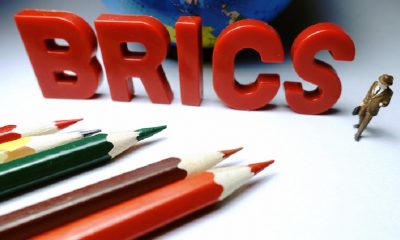

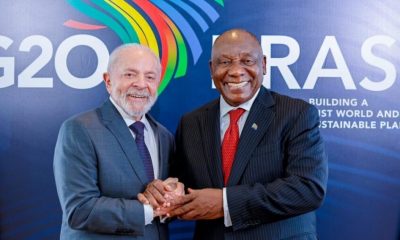

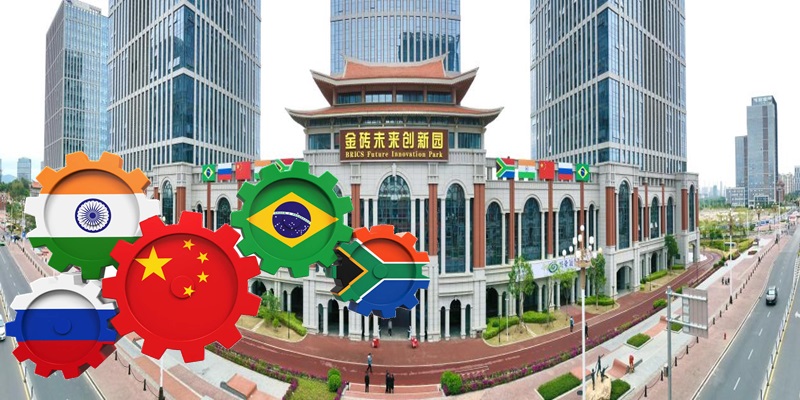
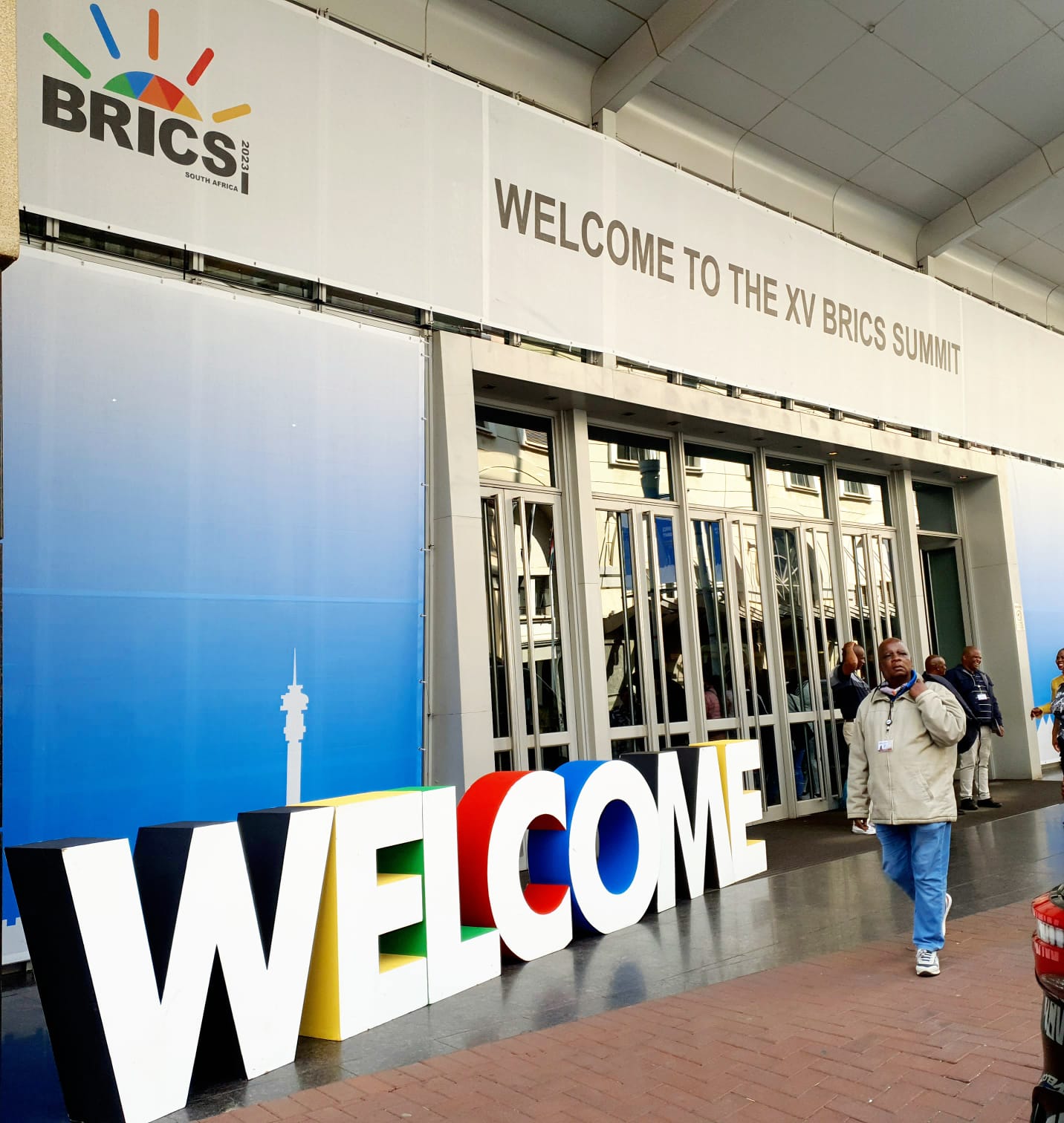











Pingback: BRICS round-up 20 December 2024 – BRICS Connect